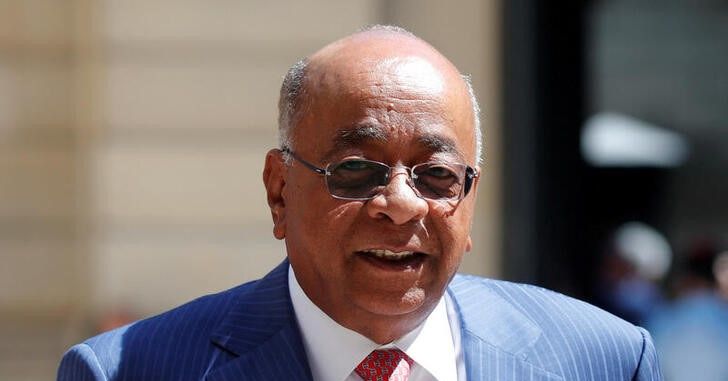JOHANNESBURG, Jan 25 (Reuters) – Africa must fight against a slide towards strongman authoritarianism that has resulted in a series of military coups and a clampdown on civil society in many countries, Sudanese-British billionaire Mo Ibrahim said.
Ibrahim’s foundation launched its Index of African Governance (IIAG) on Wednesday, which warned that advances in human development and economic opportunities were undermined by worsening security and widespread democratic backsliding.
The study, which measured progress over the past decade on topics ranging from health and education to security and the rule of law, found that overall governance has flatlined since 2019.
Much of Africa, it said, is less safe, secure and democratic now than in 2012.
While many of the external shocks crippling the continent economically and socially in recent years were outside of Africans’ control, in an interview ahead of the report’s release, Ibrahim lamented what he called “an own goal”.
“We did not cause climate change, but we are hit by it. We did not start the war in Ukraine, but we’re hit by that. We did not start COVID, but we get hit by that. Then we have bad governance. We’re responsible for it,” he said.
Bright spots, according to data compiled by the foundation, include major progress in infrastructure construction across the continent, improved equality for women, and advances in health, education and environmental sustainability since 2012.
But that period has also witnessed worsening conflicts, particularly in West Africa’s Sahel region, and political instability.
Ibrahim, who made his fortune in African telecommunications, said Africa was being swept up in a global authoritarian revival.
“We had ‘Make America Great Again’. You have Turkey, Hungary, Russia, Syria, China. It’s all around us,” he said.
“We started to see coups d’etat, which we thought was something in the past. We started to see this phenomenon of the strongman … It’s something we need to fight back against.”
Military officers have seized political control in countries including Mali, Guinea, Burkina Faso and Sudan. Traditional pressure in the form of sanctions and political isolation has largely failed to dislodge them.
But Ibrahim said that, despite what he termed the current “sad place globally” for democratic values, he remained optimistic.
“I put my faith in the young people. Look at those young kids in Sudan,” he said.
“For three years now they’re in streets. They want democracy, freedom, things they’ve never experienced in their lives. When I see those guys, I have hope.”
Reporting by Joe Bavier; Editing by Nick Macfie
Our Standards: The Thomson Reuters Trust Principles.



